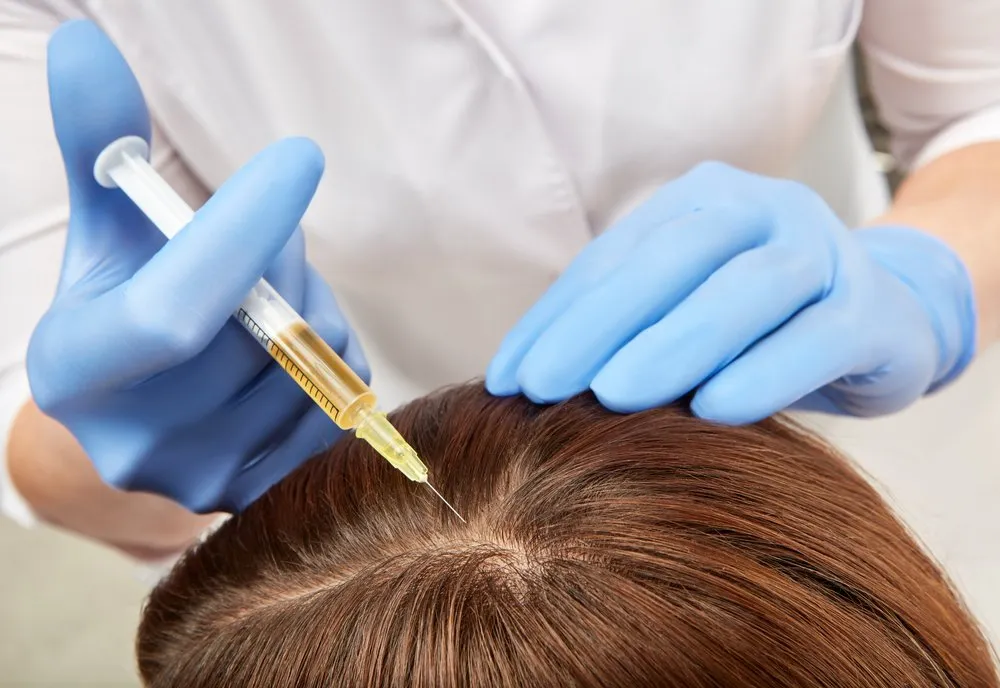Are you noticing more hair fall during periods of stress? You’re not alone. Hair loss and cortisol, the body’s main stress hormone, are closely connected.
Cortisol imbalance can disrupt your hair’s natural growth cycle, triggering shedding or thinning.
In this article, you’ll discover how cortisol affects your hair, signs to look out for, and expert-backed solutions to regain healthy hair and hormonal balance.
What Is Cortisol and Why Does It Matter?

The Role of Cortisol in the Body
Cortisol is a steroid hormone produced by your adrenal glands in response to stress. It helps regulate:
- Blood pressure
- Blood sugar
- Inflammation
- Metabolism
- Immune function
While essential in small doses, prolonged elevated cortisol levels can wreak havoc on various body systems, including your hair.
Cortisol as a Stress Hormone
Cortisol is part of the “fight or flight” response. When you’re under acute stress, it spikes temporarily. But with chronic stress from work, emotional strain, illness, or lack of sleep, your body keeps pumping out cortisol continuously.
How Cortisol Affects Hair Follicles
Hair follicles cycle through growth (anagen), transition (catagen), and rest (telogen) phases. High cortisol:
- Shortens the growth phase, pushing follicles prematurely into the telogen (shedding) phase
- Restricts blood flow to the scalp
- Increases inflammation, disrupting follicular health
Can Cortisol Cause Hair Loss?
Scientific Evidence Linking Cortisol and Hair Loss
Research shows a clear connection between elevated cortisol and telogen effluvium, a stress-induced condition where hair falls out suddenly in large amounts. Stress activates the hypothalamic-pituitary-adrenal (HPA) axis, leading to cortisol overproduction that affects hair follicle cycling.
Acute vs. Chronic Stress Effects on Hair
- Acute stress (e.g., exam anxiety or a breakup): May cause temporary shedding, but hair often regrows within months.
- Chronic stress (e.g., caregiving, long-term illness) can result in prolonged cortisol elevation and persistent hair thinning.
Conditions Like Telogen Effluvium & Cushing’s Syndrome
- Telogen Effluvium: One of the most common hair loss types linked to stress.
- Cushing’s Syndrome: A rare disorder where cortisol levels are abnormally high, leading to noticeable hair thinning and other symptoms like weight gain and fatigue.
Signs Your Hair Loss Might Be Cortisol-Related
Sudden Shedding During Stressful Periods
Did you notice clumps of hair in the shower or on your pillow during a high-stress time? That’s a hallmark of cortisol-triggered telogen effluvium.
Scalp Sensitivity and Inflammation
Some people report tenderness or a tingling sensation in their scalp during stress, possibly due to cortisol-related inflammation and vasoconstriction.
Co-occurring Symptoms (Sleep, Weight, Mood Changes)
High cortisol rarely shows up as hair loss alone. Look out for:
- Trouble sleeping
- Weight gain around the belly
- Mood swings, anxiety, or depression
- Increased blood pressure or blood sugar
How to Reduce Cortisol Naturally and Improve Hair Health
Stress Management Techniques
- Meditation & Mindfulness: A daily practice can significantly lower cortisol levels.
- Breathwork: Deep breathing reduces nervous system overdrive.
- Journaling: Helps process emotional stress.
Pro Tip: Just 10 minutes of focused breathing per day can help rebalance stress hormones.
Diet and Nutrition Tips
Focus on foods that help modulate stress and reduce inflammation:
- Magnesium-rich foods: Spinach, nuts, seeds
- Vitamin C: Citrus fruits, bell peppers
- Omega-3s: Fatty fish like salmon and flaxseed
- Adaptogens: Ashwagandha or Rhodiola (consult your doctor first)
Lifestyle Changes That Lower Cortisol
- Consistent sleep schedule (7–9 hours)
- Regular low-impact exercise like yoga or walking
- Limiting caffeine and alcohol
- Digital detoxing from screens and social media
Supplements to Discuss with Your Doctor
- Phosphatidylserine: Helps regulate cortisol levels
- L-theanine: Promotes relaxation
- Ashwagandha: Known for cortisol-lowering effects
- Always consult a healthcare provider before beginning supplements.
Hair Loss Treatment Options When Cortisol Is the Culprit
Topical Treatments (Minoxidil, Serums)
Minoxidil can stimulate regrowth while cortisol is being managed. It improves blood flow and revives dormant follicles.
Medical Interventions
- Cortisol-lowering medications may be prescribed in severe cases (e.g., for Cushing’s Syndrome).
- Addressing underlying mental health issues (e.g., anxiety, PTSD) with therapy or medication can also help normalize cortisol.
Hair Restoration Therapies
When hair doesn’t regrow despite cortisol management, treatments like:
- PRP Therapy
- Mesotherapy
- Microneedling with growth factors

may rejuvenate the scalp and reactivate follicles.
Hair Transplant – When Stress Is Managed but Hair Doesn’t Regrow
If follicles are permanently damaged and hair does not grow back, hair transplant surgery may be a lasting solution. Dr. Rana Irfan, ABHRS-certified surgeon, offers advanced FUE hair transplants with natural-looking results.
When to See a Specialist
Red Flags to Watch For
- Rapid, unexplained hair thinning
- Hair loss with fatigue, mood swings, or unexplained weight gain
- No regrowth after several months of stress resolution
What to Expect During Diagnosis
Your provider may recommend:
- Scalp examination
- Blood tests (including cortisol, thyroid, and iron)
- Hormonal panel
- Hair pull test
Role of Trichologists and Hormone Specialists
Trichologists focus on scalp and hair disorders. Endocrinologists evaluate hormonal imbalances like high cortisol. A collaborative approach ensures better diagnosis and outcomes.
FAQs About Cortisol and Hair Loss
Can reducing stress reverse hair loss?
Yes, if caught early. Normalizing cortisol can allow hair to resume its natural cycle.
How long does it take for hair to grow back after cortisol drops?
Hair regrowth typically starts within 3–6 months after cortisol levels stabilize.
Can cortisol blockers help with hair loss?
In rare medical cases, yes. But these are not usually prescribed unless cortisol is dangerously high.
What blood tests can check cortisol levels?
A serum cortisol test (morning draw) or a 24-hour urinary cortisol test can be used.
Is cortisol-related hair loss permanent?
Usually not. Most cases are reversible if addressed early, but prolonged damage may require medical or surgical treatments.
Take the Next Step Toward Recovery
If you suspect your hair loss is due to stress or hormones, don’t wait. Book a consultation with Dr. Rana Irfan in Islamabad today. Our team provides expert hair loss diagnosis, cortisol assessment guidance, and advanced restoration solutions to help you regain both your hair and your peace of mind.
